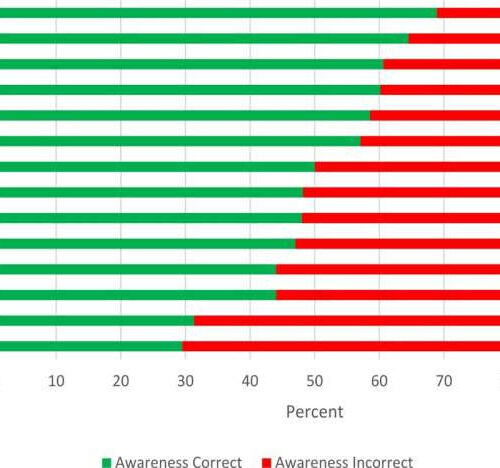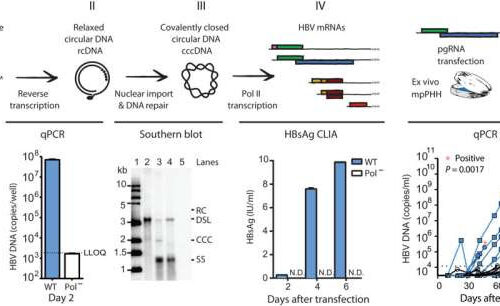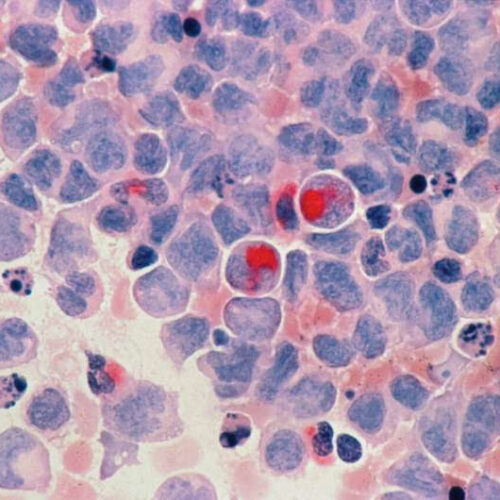by University of Chicago DNA, which has a double-helix structure, can have many genetic mutations and variations. Credit: NIHA new statistical tool developed by researchers at the University of Chicago improves the ability to find genetic variants that cause disease. The tool, described in a new paper published January 26, 2024, in Nature Genetics, combines data...
Tag: <span>New tool</span>
New Tool Provides Greater Accuracy for Medical Biosensors
University of Missouri researchers develop an innovative method using nanopores to help scientists advance their discoveries in neuroscience, other medical applications involving biosensors. For more than 20 years, Li-Qun “Andrew” Gu at the University of Missouri has developed a passion for solving life science problems by creating sophisticated diagnostic tools — on the nanoscale. Recently, Gu, a...
New tool pinpoints gaps in awareness of blood cancer symptoms
by University of Surrey Symptom awareness. *Cough was included as a non-blood cancer symptom. Credit: BMC Cancer (2023). DOI: 10.1186/s12885-023-11149-x A new tool could help identify gaps in the public’s knowledge of blood cancer symptoms—helping to shape future awareness campaigns that could save countless lives. Researchers from the University of Surrey and Queen Mary University of London (QMUL)...
New tool to study hepatitis B could open the door to a cure
by Rockefeller University The RNA launch system. Credit: Science Advances (2023). DOI: 10.1126/sciadv.adg6265 Hepatitis C and hepatitis B viruses both attack the liver, eventually causing deadly cirrhosis or cancer. But while antivirals can cure 95% of HCV infections, its cousin HBV has long eluded effective therapeutics. As a result, nearly 1 million people die from HBV every year....
New tool to predict people’s risk of developing lung cancer within the next ten years
By Jane Icke, University of Nottingham Researchers at the University of Nottingham have helped to develop a new tool called “CanPredict,” which is able to identify the people most at risk of developing lung cancer over the next 10 years, and put them forward for screening tests earlier, saving time, money and, most importantly, lives. Featured...
No Labels? No problem! New tool overcomes major hurdle in clinical AI design
By EKATERINA PESHEVA September 15, 2022 Image: agcuesta/iStock/Getty Images Plus Harvard Medical School scientists and colleagues at Stanford University have developed an artificial intelligence diagnostic tool that can detect diseases on chest X-rays directly from natural-language descriptions contained in accompanying clinical reports. The step is deemed a major advance in clinical AI design because most...
Researchers discover new tool for improving pancreatic cancer care
by Champalimaud Centre for the Unknown Credit: Unsplash/CC0 Public Domain The statistics for pancreatic cancer are sobering. With a five-year survival rate of only 9%, incidence of the most common type, pancreatic ductal adenocarcinoma (PDAC), is growing and projected to be the second cause of cancer deaths by 2030. Surgery remains the most effective treatment,...
Engineers develop new tool that will allow for more personalized cell therapies
A University of Minnesota Twin Cities team has developed a new tool to predict and customize the rate of a specific kind of DNA editing called “site-specific recombination.” The research, recently published in Nature Communications, paves the way for more personalized, efficient genetic and cell therapies for diseases such as diabetes and cancer. The process...
A new tool reveals how immune cells find their targets
MIT biological engineers have developed a simple way to identify B or T cells that interact with viral or bacterial proteins. The human body has millions of unique B and T cells that roam the body, looking for microbial invaders. These immune cells’ ability to recognize harmful microbes is critical to successfully fighting infection. MIT biological engineers...
New tool in cancer battle
FLINDERS UNIVERSITY A new dietary tool to quickly and accurately assess micronutrient levels aims to help cancer patients fight disease, paving the way to find better nutritional solutions for oncology services, Flinders University researchers say. Chronic inflammation is a risk factor for cancer, the leading cause of death globally with 10 million cancer deaths and...
- 1
- 2





